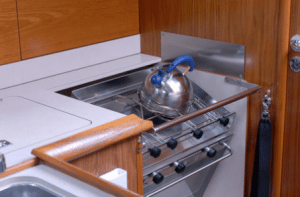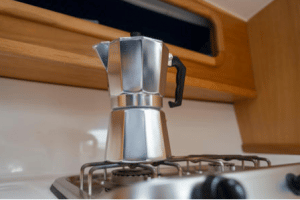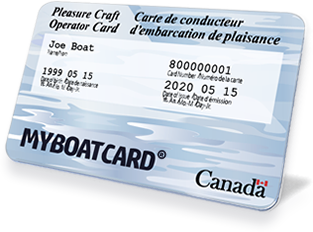Fuel-Burning Appliances
 The propane and butane often used in fuel-burning appliances on boats must be treated with utmost respect.
The propane and butane often used in fuel-burning appliances on boats must be treated with utmost respect.
These gases can be more dangerous than gasoline!
Propane and butane, like gasoline vapors, are heavier than air and will spread rapidly into the lower parts of the boat. These gases are extremely difficult to remove and are highly explosive.
To prevent accidents, always be sure to provide good ventilation when using a fuel-burning appliance.
The following precautions should be taken when using fuel-burning appliances:
- Use only in a well-ventilated area;
- Secure in a manner that prevents fuel leaks;
- Keep gas cylinders and tanks in a secure, well-ventilated area; and
- Follow all manufacturers’ instructions.
While on a boat, you should check regularly the condition of any open-flame heating, cooking, or refrigeration
system that uses gaseous fuel. Verify that the installation complies with the manufacturer’s instructions.
Ignition Protection
 Every boat that has a gasoline engine or uses propane devices must use ignition-protected electrical devices.
Every boat that has a gasoline engine or uses propane devices must use ignition-protected electrical devices.
These parts are designed so that, under normal conditions, they will not ignite gasoline or propane fumes or vapour. Only use electrical components that are clearly labelled as ignition protected.
Many older boats, and even some new ones, have been fitted with converted car or truck engines. Car and boat engines are similar; car parts can and will work. However, if they are not of marine grade with ignition protection, they pose a risk for a potential explosion, serious injury or death. If you are not sure that your engine has ignition-protected parts, consult a marine mechanic.

